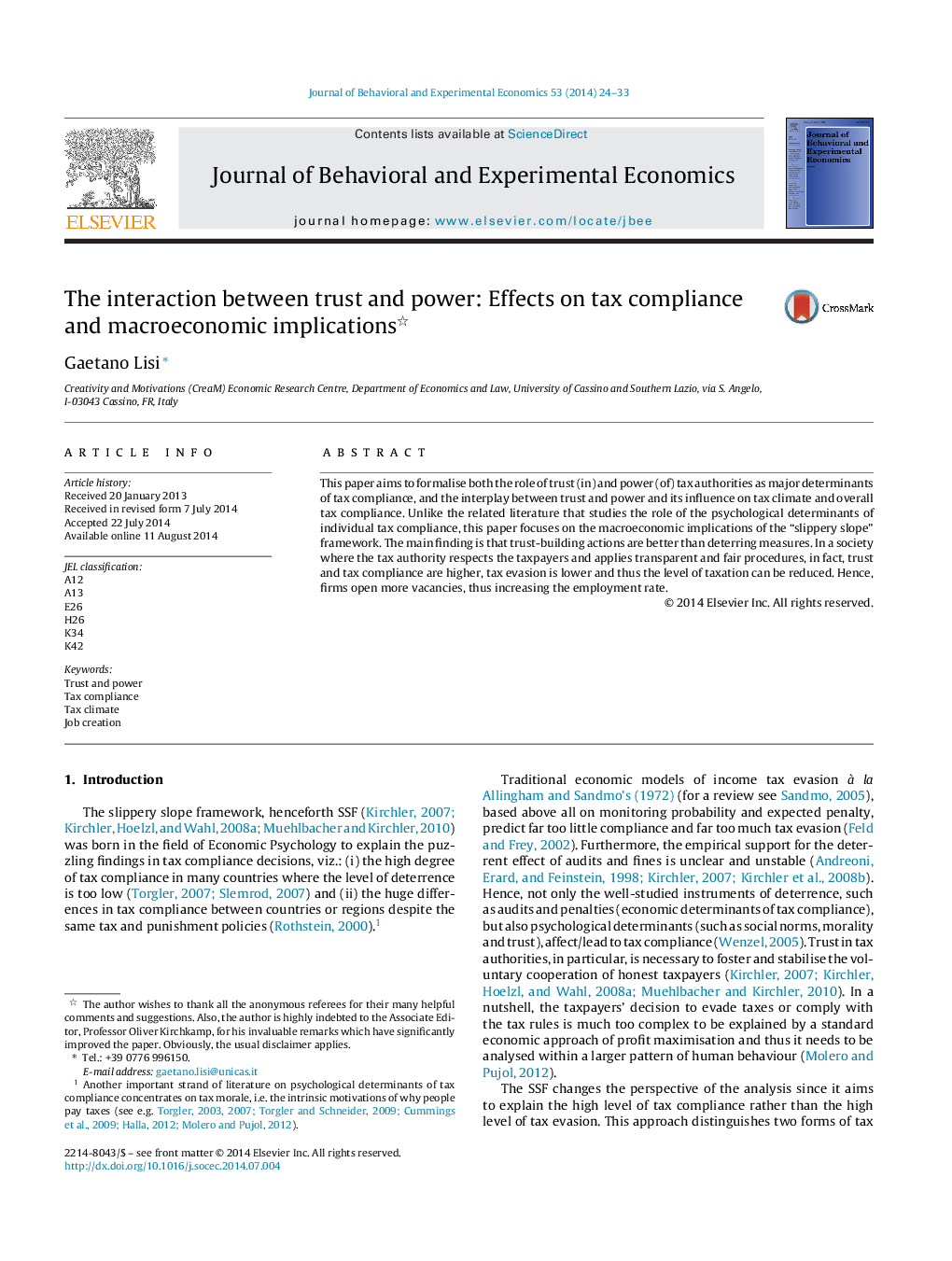| Article ID | Journal | Published Year | Pages | File Type |
|---|---|---|---|---|
| 881934 | Journal of Behavioral and Experimental Economics | 2014 | 10 Pages |
•The trust–power interaction (the “slippery slope” framework) is formalised.•The model focuses on the macroeconomic effects of the trust–power interaction.•Trust-building actions are better than deterring measures for tax compliance.•In a trustful society, tax compliance is higher, while unemployment is lower.
This paper aims to formalise both the role of trust (in) and power (of) tax authorities as major determinants of tax compliance, and the interplay between trust and power and its influence on tax climate and overall tax compliance. Unlike the related literature that studies the role of the psychological determinants of individual tax compliance, this paper focuses on the macroeconomic implications of the “slippery slope” framework. The main finding is that trust-building actions are better than deterring measures. In a society where the tax authority respects the taxpayers and applies transparent and fair procedures, in fact, trust and tax compliance are higher, tax evasion is lower and thus the level of taxation can be reduced. Hence, firms open more vacancies, thus increasing the employment rate.
